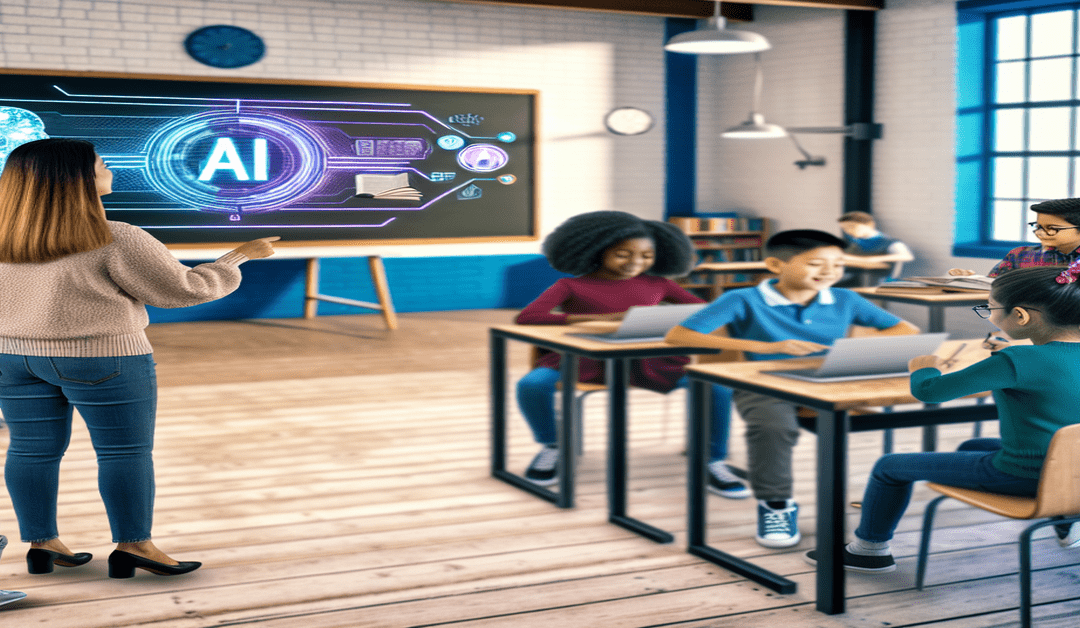The Future of Education: Will AI Be the Great Equalizer?
In the rapidly evolving landscape of education, artificial intelligence (AI) has emerged as a potential game-changer, promising to revolutionize the way we teach and learn. As we stand on the cusp of this transformative era, it is crucial to examine the role AI could play in addressing educational disparities and promoting equity. Will AI be the great equalizer, or will it further widen the gap between the haves and have-nots?
The Promise of AI in Education
AI has the potential to transform education by offering **personalized learning experiences** tailored to individual student needs. By analyzing data on student performance, learning styles, and preferences, AI algorithms can adapt content and pace to optimize learning outcomes. This adaptability is particularly beneficial for marginalized students, as it can help address specific learning gaps and challenges, leveling the playing field.
Moreover, AI can enhance teacher capacity and efficiency by automating administrative tasks, providing real-time feedback, and offering data-driven insights. McKinsey & Company highlights that AI tools can save teachers up to 13 hours per week, allowing them to focus on high-value activities like student engagement and differentiated instruction. This increased efficiency can make quality education more accessible to a broader range of students.
The Risks and Challenges of AI in Education
Despite its promise, AI in education is not without its risks and challenges. One significant concern is the potential for AI systems to perpetuate and even amplify existing biases. If AI algorithms are trained on biased data, they can reinforce racial, gender, and socioeconomic disparities. Brookings Institution warns that biased AI can lead to discriminatory outcomes, such as unequal access to educational resources or inaccurate student assessments.
Another challenge is the **digital divide**, which refers to the unequal access to technology and digital resources. Students from low-income backgrounds or underserved communities may lack the necessary devices, internet connectivity, or digital literacy skills to fully benefit from AI-powered learning tools. Pew Research Center reports that 15% of U.S. households with school-age children do not have high-speed internet at home, highlighting the risk of AI exacerbating educational inequities.
Ensuring Equitable AI in Education
To harness the potential of AI as an equalizer in education, it is essential to proactively address the challenges and mitigate the risks. **Equitable access** to AI tools and technology must be a top priority. Governments, schools, and organizations must invest in infrastructure and initiatives that ensure all students have the necessary resources to engage with AI-powered learning.
Additionally, regular **bias auditing** of AI systems is crucial to identify and correct any discriminatory outcomes. The World Economic Forum emphasizes the importance of diverse and representative data sets, as well as transparency and accountability in AI development and deployment.
Furthermore, providing educators with comprehensive **training and support** is essential for the effective integration of AI tools into teaching practices. Teachers must be equipped with the knowledge and skills to leverage AI in ways that promote equity and inclusion. RAND Corporation highlights the need for professional development programs that enable teachers to navigate the ethical and pedagogical implications of AI in education.
The Path Forward
As we navigate the future of education, AI presents both opportunities and challenges in the pursuit of equity. While AI has the potential to personalize learning, enhance efficiency, and improve outcomes, we must remain vigilant in addressing the risks of bias and unequal access. By prioritizing equitable AI development, ensuring widespread access to technology, and empowering educators, we can harness the transformative power of AI to create a more inclusive and equitable educational landscape.
The path forward requires collaboration among policymakers, educators, researchers, and technology providers. Together, we must shape an educational future that leverages AI to close achievement gaps, provide equal opportunities, and unlock the potential of every student, regardless of their background. Only then can AI truly become the great equalizer in education, paving the way for a more just and prosperous society.
#AI #Education #Equity #Personalization #DigitalDivide
-> Original article and inspiration provided by Cornelia C. Walther
-> Connect with one of our AI Strategists today at Opahl Technologies

